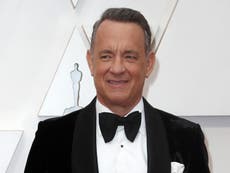When I see my daughter being taunted for her name, it reminds me we are all responsible for bullying
I often think of the daily battles children who are not ‘typical’ face. Children who are far more vulnerable to teasing and bullying than my child is

My daughter is called Vivie (pronounced Vee-Vee) and when she was three, an older girl in her nursery playground giggled and called her “wee wee”. Not the most imaginative put-down but the girl was only about four and not all of us are blessed with the gift of the gab or a sophisticated sense of humour. She kept pointing, laughing and saying “Ha ha! Your name is WEE WEE” as my daughter looked puzzled as children do the very first time they encounter someone who ISN’T being nice to them and telling they are adorable.
As the little girl taunted her, I thought, “Oh dear love, your mummy is standing right next to you, watching and you’re about to get into trouble. First rule of bullying, don’t do it in front of grown-ups!” But her mother said nothing. Nothing. Breaking a major nursery-gate law of at least acting like you give a stuff when your child is being a rotter to another.
No big deal in the scheme of things, right? Kids will be kids and my girl has to learn the laws of the jungle. But I reckon every parent reading this will know that actually I fumed at the mum who did nothing to let her kid know that being mean to my cub wasn’t cool. I marked her as a woman I would have absolutely nothing to do with and who was possibly a psychopath. We live very close to each other and I still give the woman icy glares in the Co-op. Silly, isn’t it, that I haven’t forgotten that mum turning a blind eye to my kid being teased. Yet so many parents have to deal with outrageously vile attitudes towards their children.
My daughter is a “typical” child. She is able-bodied, has no learning difficulties and has the self-confidence and ability to stand her ground, articulate her feelings and gravitate towards friends who make her feel good about herself.
Every now and then, I’m reminded of the daily battles children who are not “typical” face. Children who are far more vulnerable to teasing and bullying than my child is. If their parents spoke up every time their kid experienced prejudice or bullying, they would do little else.
I had a friend whose sister had cerebral palsy. Out and about in our twenties, we’d regularly hear the word “spaz” by people. When I got into a bit of a “scene”, shall we say, with a guy at a party about it, my friend pulled me away and gently told me it wasn’t worth getting angry.
“I hear it all the time. It’s just ignorance. Let’s go.”
Imagine that. Imagine having to become used to your loved one being casually dehumanised. Imagining knowing that you have to be the bigger person because those words and that attitude is so accepted in society.
On Twitter, the actor Sally Phillips pulled Liam Gallagher up on using the word “mong” to describe himself being stupid. He has since deleted the tweet.
Phillip’s son has Down’s Syndrome. Every day she and other parents face the ignorant language of those who don’t know or care that their “banter” targets children like Phillips’s, children who are already battling for the same rights as everyone else: to be accepted in mainstream schools and for prejudice against them and derogatory language used to describe them to be taken as seriously as racism or homophobia.
“It’s just a word” doesn’t stand up. “P***” used to be a very common word to use and when I was a kid and it stung me. Grown-ups said it to me. In a sweetshop when I was about eight, the shopkeeper told the bigger boys behind me off, “Oi, no pushing in, the p*** kid was first, what can I get you love?” I felt utterly humiliated by him and the entire joy of my pear drop purchase was ruined. Us Seventies’ p*** kids grew up: we became comedians, journalists, politicians, teachers. We embedded ourselves in society, found allies, found our voices, made a fuss, and made it clear that language like that was to be recognised as the vile, derogatory slurs they are.
People with learning difficulties are not able to do that so words used to degrade them can still be casually used by a rock star on Twitter with three million followers. My heart went out to Phillips. You might argue she could have left it. The internet is, after all, awash with ignorant people saying hurtful things, and you can’t fight them all. But when it’s a man who has become famous worldwide for his ability to connect with people, he needs to have a clue how hurtful it is, and how flippant remarks like that can make life even harder for families who are already up against it. Sally Phillips responded to Gallagher with poise and dignity. More than I could muster in her shoes. I’d be looking back in fury.





Join our commenting forum
Join thought-provoking conversations, follow other Independent readers and see their replies